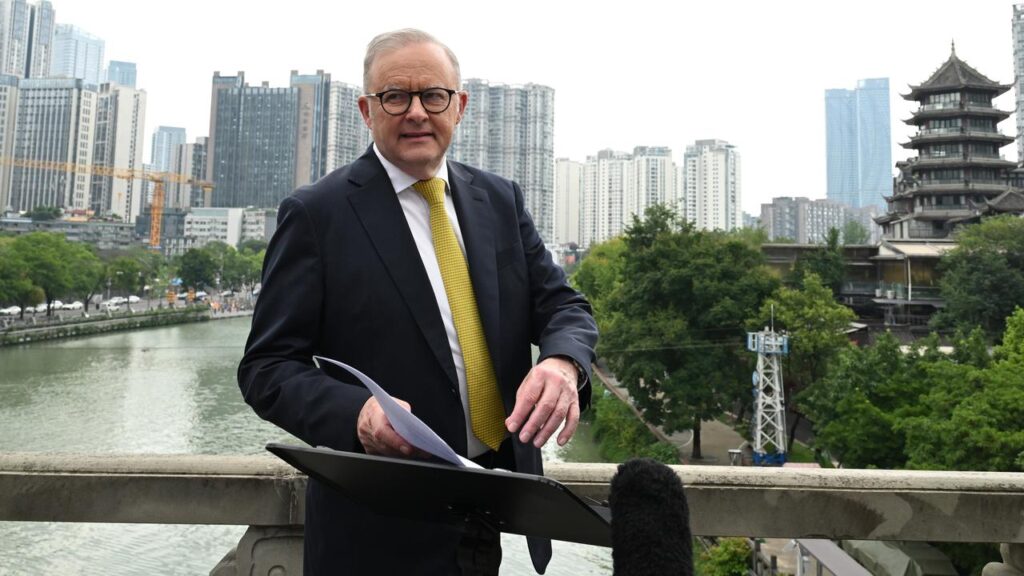PM confident of Australian jobs boost after China visit
Jacob Shteyman and Andrew Brown |

Anthony Albanese is returning to Australia after wrapping up a six-day trip to China, hailing the historic visit as an “important step” in the two countries’ relationship.
The prime minister rounded off the diplomatic visit on Friday following meetings with Chinese President Xi Jinping and senior officials in Beijing, Shanghai and Chengdu.
The visit would sharpen economic and diplomatic ties between Australia and its largest trading partner, he said.

“This visit marks another important step in the Australia-China relationship,” he said in a statement.
“A stable and constructive relationship with China is in Australia’s best interest.
“Strengthening our security and economic interests with our largest trading partner will boost Australian jobs and support Australian businesses.”
But the prime minister’s visit has drawn criticism from the coalition for including stopovers at the Great Wall of China and a panda breeding facility.
Opposition trade spokesman Kevin Hogan said the trip was a “working holiday” for the prime minister.
The level of effort that had gone into meeting President Xi should be extended to other leaders, such as US President Donald Trump, he added.

“(China’s) an important trading partner. I’m glad the prime minister has visited there and been there because of that reason,” he told ABC Radio on Friday.
“I’m just also adding that it’s a real shame he doesn’t have the same exuberance about doing that with the US president.”
Mr Albanese has not had a face-to-face meeting with Mr Trump since the Republican leader was sworn in.
The pair were due to hold talks at the G7 summit in Canada in June, but those were cancelled at the eleventh hour due to the escalating situation in the Middle East.
Federal minister Mark Butler said images of the prime minister at iconic Chinese locations were more than just a tourist opportunity.
“Australians understand the impact that these images have on building respect between two peoples, because we do it when we host visitors,” he told Seven on Friday.
“We know that builds respect, and that’s just so important with our most important trading partner.”
Mr Albanese concluded his trip in the regional hub of Chengdu, which has undergone a transformation in recent decades.
The changes weren’t lost on the prime minister who – in his second official leaders’ visit to China – summed it up as a nation that “sees itself as confident going forward”.
“I’m an urban policy nerd,” he said.
“As you drove from the tennis centre to here yesterday afternoon, it struck me that there was more innovative architecture than in any city I have been to around the world.”
Economic growth has slowed and there are concerns that, with its ageing population and a looming middle-income trap, China may soon reach its peak.
But it’s still on track to reach its economic growth target of five per cent this year.
That would mean about another $1.4 trillion added to its economy – the equivalent of adding half of Australia to the Chinese economy in just one year.
On Thursday, Mr Albanese toured a manufacturing facility owned by Australian hearing aid producer Cochlear.

That Australian innovation – giving the gift of sound to someone who has never heard their parents’ voices or birds chirping – should be a source of immense national pride, he said.
But it was also an example of the economic opportunity China presents for Australia.
China is one of Cochlear’s largest markets, having already sold about 50,000 units there.
But there are another 10 million people in China with severe to profound hearing loss that could benefit from a Cochlear device.
So as the Asian nation’s middle class continues to swell, the potential benefit to both countries will continue to grow as well.
AAP